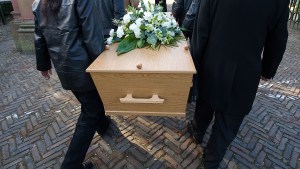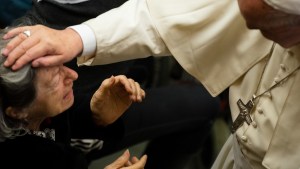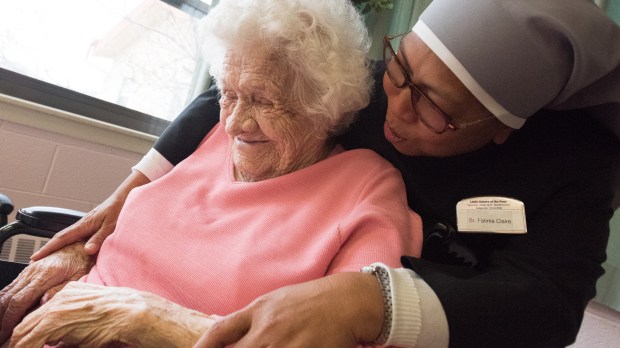Today Cardinal Pietro Parolin, the pope’s secretary of state, speaking on behalf of Pope Francis, asked that palliative care, which helps protect the dignity of the dying, continue to be made more available.
He said this in a letter addressed to a congress on palliative care organized in Rome by the Pontifical Academy of Life, ongoing through March 1.
The cardinal expressed the Vatican’s position in favor of treatments or remedies the goal of which is to mitigate, soften, or attenuate a sick person’s pain. He insisted that it is necessary to continue rediscovering the deepest vocation of medicine, which consists above all of caring for sick “even though it may not always be possible to cure” them.

Read more:
Does the Church expect us to suffer instead of “dying with dignity”?
Pain relief
The cardinal recalls how “Pope Pius XII had clearly legitimized, by distinguishing it from euthanasia, the administration of analgesics to alleviate unbearable pain that is not otherwise treatable, even if, in the phase of imminent death, they may cause a shortening of life.”
To avoid canceling the communication and relationship with the patient, he urged prudence and discernment in using “new drugs, which act on the state of consciousness and make different forms of sedation possible,” because the ethical criteria requiring the patient’s consent and involvement have not changed.
Therefore, “it must be considered as an extreme remedy, after having carefully examined and clarified the indications.”

Read more:
‘Today you will be with me in paradise’: A reflection from a palliative care physician
Be welcoming
The letter also reminds those involved in end-of-life care of the importance of “being present, being close, being welcoming,” so that the approach of death may be “no longer a place of separation and solitude, but rather an opportunity for meeting and communion.” This is particularly important during moments of “sickness and suffering, especially at the end of life.”
Parolin explains that the task of palliative care “mobilizes many scientific, organizational, relational and communicative skills, including spiritual accompaniment and prayer.”
The family
The cardinal emphasizes “the importance of the family” in this path of accompanying the sick. He speaks of solidarity between generations in the “mutual aid […] in times of suffering or illness.”

Read more:
Pope discourages “overzealous treatment” while affirming that euthanasia is always wrong

